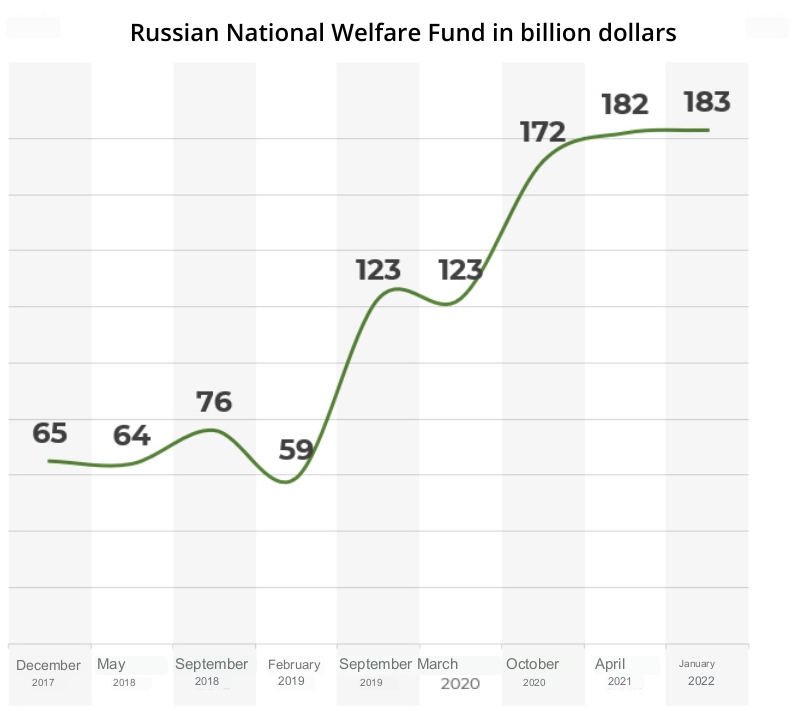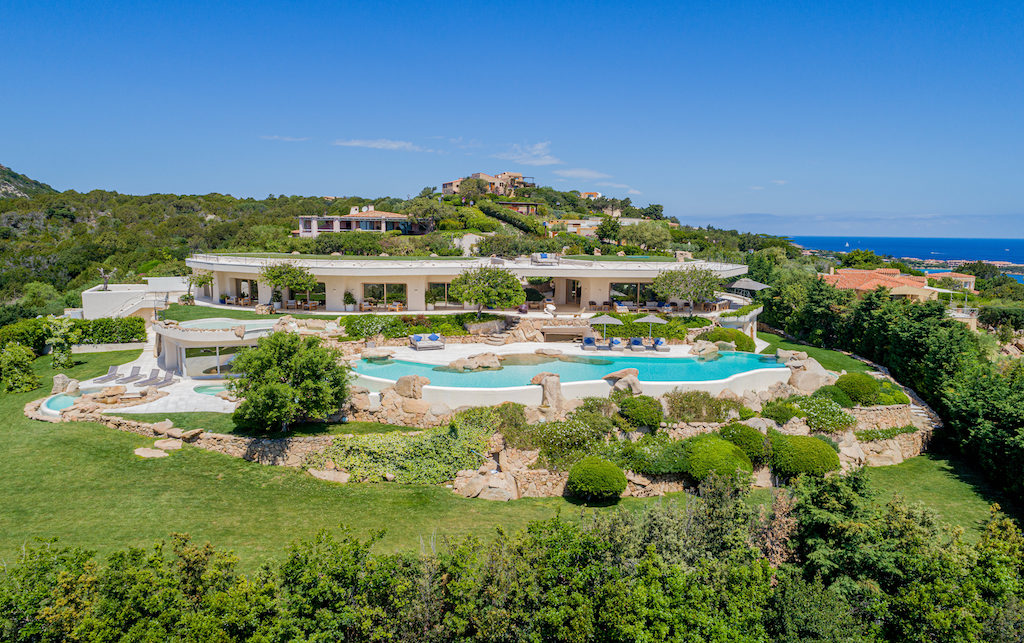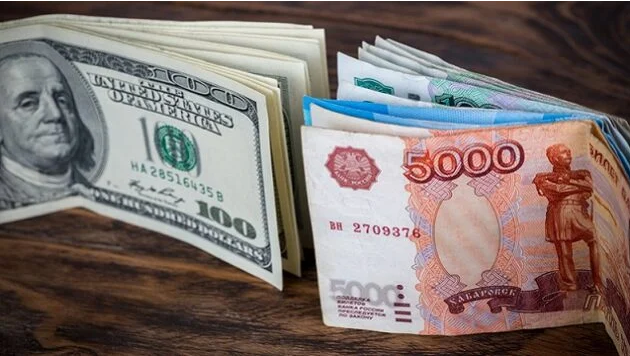At the beginning of the Russo-Ukrainian war, the EU and US imposed several packages of sanctions on Russia, including limits on trade with Russia and personal sanctions against Russian oligarchs. The West has also frozen nearly $300 billion in Russian federal reserves, allocated to Western assets. However, these reserves were not confiscated. Instead of sending Russian money to the reconstruction of Ukraine right now, they lie in accounts and quietly wait for the end of the war to return to Moscow.
The frozen Russian $300 billion is mainly held in government bonds from the US, the UK, and Germany. The governments of these countries know precisely how many bonds were purchased by Russia and which banks were involved in such large transactions. However, the countries are reluctant to create a mechanism for confiscating these assets. In most cases, this requires separate laws to be adopted, as Ukraine did.
Ukraine has already confiscated many Russian assets by the ruling of the National Anti-Corruption Court, mainly according to several laws designating Russia as an aggressor country. Its assets are considered instruments for violating Ukraine's territorial integrity.
European countries and the United States could use similar instruments regarding $300 billion of Russian reserves. Yet, they don’t dare to violate sovereign immunity, which prevents one country from taking another country's money, even though Russia has violated numerous UN charters and committed the crime of aggression, which makes its immunity void.
Why isn’t the West confiscating and using Russian assets despite the war?
The main reason for inaction could be the fear of losing other investments, including more than $3 trillion of Chinese reserves in Western currencies. Should Western countries show they are ready to confiscate assets in case of wars against third countries, China and other Asian and African countries may start withdrawing their reserves and converting them to gold or yuan.
An appropriate way to restrict sovereign immunity on Russian reserves and confiscate it could be through the UN Security Council, citing Russia's violation of all possible norms of international law. However, Russia is a permanent member of the Security Council and can block any such decision.
The UN General Assembly adopted a resolution
on reparations on 14 November 2022, which sets the framework for confiscating Russian reserves for violating another country's sovereignty. This resolution allows countries that hold Russian reserves to conclude an international agreement, create a register of damage caused by the Russian war, and confiscate Russian reserves to compensate for this damage. However, half a year later, the resolution implementation remains in the negotiations stage. This resolution still requires that countries such as the US, Germany, and the UK take concrete steps to confiscate Russian assets bypassing the UN Security Council.
What is needed for confiscation?
To confiscate and use the Russian reserves quickly, a change of domestic legislation in some Western countries may be required.
Ukraine already adopted a relevant law on 3 March 2022, and then several amendments in May 2022, which allows Ukraine to confiscate the property of the Russian Federation and its residents given the committed crime of aggression. Specific crimes of individuals, such as violation of sanctions, are then supportive arguments for confiscation, but not the only ones. This significantly speeds up the confiscation process in court. For example, Ukraine's High Anti-Corruption Court transferred millions-worth of mining facilities from a Russian oligarch to the Ukrainian state, and there are dozens of similar cases.
The EU and US lack the legal framework to designate Russia as an aggressor country to automatically confiscate the assets of Russian oligarchs and, most importantly, the reserves of the Russian central bank. Instead, the West tries to prove that particular individuals violated sanctions or laundered money, using this argument as the reason to confiscate their particular property.
This is a lengthy and ineffective path. Using this strategy, the EU has confiscated only a small portion of the $300 billion belonging to Russian oligarchs in the West. To compare, the US managed to confiscate only $5.4 million for Ukraine, launching proceedings from only one (!) Russian oligarch, Konstantin Malofeev
, after more than a year of the war.
Regarding the most important sum of $300 billion of Russian state reserves, such a strategy can't work at all. These reserves can't be confiscated by a court ruling, but only after a political decision of the parliament. Therefore, all levers are in the hands of US, UK, and German politicians.
Russia has prepared its finances for the war, while the West hesitates
Russia has been financially preparing for war since 2014.
Following the occupation of Ukraine’s Crimea and the beginning of the war in Donbas in 2014, Russia's Central Bank accumulated money for a new war. Russian international reserves increased from $385 billion in 2014 to $630 billion in 2022. The frozen $300 billion is less than half of Russian reserves, and freezing them had little impact. It would really matter only if money were confiscated and used for the West’s and Ukraine’s needs.
Anticipating new sanctions, Russia also reduced the share of assets in US dollars and British pounds and increased the share of assets in euros and yuan. In particular, US Treasury bonds worth $150 billion in 2014 decreased to $5 billion in 2022. Therefore the US fear of Chinese currency replacing the dollar is already materializing and requires a response.
The Russian National Welfare Fund also helps the Kremlin to survive. This reserve budget accumulates profits from the Russian oil industry and is the primary source to cover military expenses and finance strategic industries. Preparing for war, Russia increased the amount of money in the fund from $65 billion in 2018 to $182 billion in 2022. Having spent only about $40 billion from the fund, Russia can easily continue financing the war at least until 2023. And this is the other reason why the West should confiscate Russian assets to win the financial competition.

According to the World Bank, Ukraine needs more than $400 billion to reconstruct infrastructure damaged due to the war. The only possibility to cover this cost is to use frozen Russian reserves currently located in the West.
The money of Russian oligarchs was frozen, but mainly not confiscated and not used
The West has frozen the assets of Russian oligarchs worth $30 billion, but the confiscation process has been slow.
For example, the son of the Russian oligarch Dmitry Mazepin, Nikita Mazepin, partially removed sanctions against himself through the courts and continued participating in racing competitions. The Mazepins own a villa in Italy worth $105 million that has been arrested. Yet, like most of the assets, it wasn’t sold, and the money wasn’t used by the EU. Russian oligarchs hire expensive lawyers to prolong the court hearings for years, while European courts lack proper legislation to speed up confiscation.

Designating Russia a terrorist state -- one of the ways to speed up the confiscation of its assets
Paying taxes to the Russian budget at the time of its war against Ukraine could be recognized as the financing of aggression and become the reason for confiscation. This, however, requires political decisions and changes to legislation by European and US parliaments or, alternatively, designating Russia as a state sponsor of terrorism, which would directly prohibit Western companies from operating in Russia and allow confiscation of Russian reserves.
Designating Russia as a state sponsor of terrorism is often opposed because Russia doesn’t fit the list of other terrorism sponsors by its size and power, namely Cuba, North Korea, Iran, and Syria. This highlights that the Western legal framework doesn’t have a proper place for Russian crimes. This gap must be filled by new legislative norms and practices rather than allowing the aggressor's money to stay in the accounts and wait. Currently, while Russia conducts a decisive financial policy centered around closer ties with Asia and Africa, having a goal to accumulate more funds for the ongoing war, the West hesitates.
Four reasons why the US should designate Russia as a state sponsor of terrorism
Related:
- Switzerland not to confiscate frozen Russian assets over fear of “undermining constitution”
- Ukraine started selling confiscated Russian property at online auctions to collect money for the reconstruction of damaged objects
- Four reasons why the US should designate Russia as a state sponsor of terrorism

Bohdan Miroshnychenko is a Ukrainian analyst and journalist specializing in international relations. He contributes to various Ukrainian media, including Ukrainska Pravda, Texty, 24 Channel.

